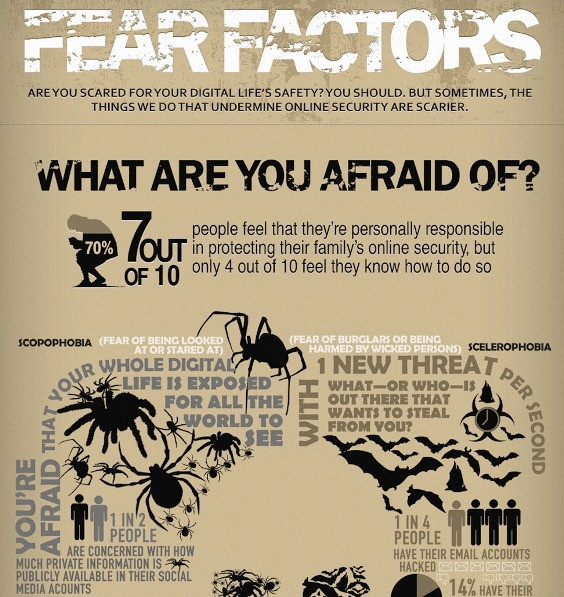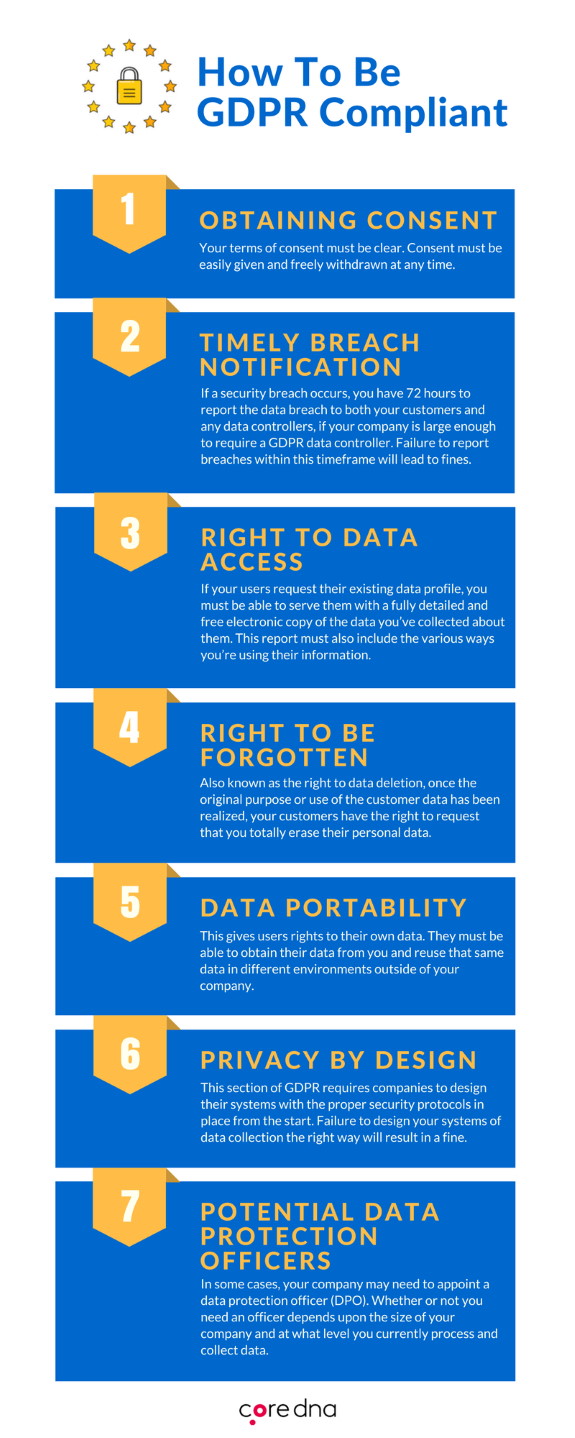Since nearly 100 percent of the population in developed countries uses the internet each day, we have a right to demand a 100 percent secure environment where we work, play, and interact.
Is that too much to ask?
Online comfort means more than having the right equipment for extended gaming or streaming sessions. You should also feel secure from outside threats.
Despite the best efforts of cybersecurity experts and developers, criminals are working hard to find new ways to get around our defenses.
Cybersecurity Statistics That Will Surprise You
We're not going to mince words here. Cyber attacks are rising by about 300 percent every year. Cloud-based computing and smartphones broaden the attack surface and provide new opportunities to penetrate our defenses.
Sometimes, it seems like a never-ending game of cat and mouse.
How big is the risk?

Image source: InfoGraphics Zone
Even when a company promises that they won't share or sell your information to a third party, they often store what information they collect, leaving it vulnerable. That said, 43 percent of marketing companies will still sell your information to businesses who use it for targeting consumers.
This puts you at risk in several ways.
More than 90 percent of cyber attacks are enacted via a phishing exploit, and more than 40 percent of these are sent through Microsoft email platforms, one of the most trusted brands in the biz.
There is a new attack launched every 39 seconds, meaning thousands were launched during the time it took you to read this article. What's more, the average data breach goes undetected for 197 days. That's a lot of time for a criminal to be poking around in your network and databases or selling your credit card number to the highest bidder on the dark web.
7 Rules for Online Safety
Cybersecurity is a problem for all of us, whether you're a business owner or a parent.
However, nothing in this world is completely safe.

image source: Coredna
The risks come to us from several places, the most common of which are:
* Opening a browser window
* Clicking on a popup, video, link, or graphic
* Opening a web page or email attachment
* Downloading files from a file sharing or streaming website
* Brute force attacks on vulnerable networks
Governments are doing their best to provide us with data protection through regulations that determine how our information is collected, stored, and used. They're also making it very expensive for companies who don't follow the rules.
What we can offer is our own set of rules to live by that were designed to minimize your risk and exposure.
Control Access to Your Personal Information
Some data is necessary in order for you to leverage the convenience of online commerce. But, how much information is too much?
Limit what data you release, and to whom, and avoid any app or website that requests more data than is needed. For example, it makes sense that a business might need your name and address, but why would they need access to your contacts or camera? The same goes for apps and other platforms that request permissions from users. You always have the right to refuse.
Make Use of Privacy Settings
Every web browser and operating system has privacy settings that you can customize. If you don't know where they are or how to enable them, you can always use the standard Help menu.
Individual websites and social media platforms also have privacy controls. Use them to control how much data marketers and others can access, and check your settings every once in a while to make sure they're still active or haven't been reset. Facebook is especially bad about this.
Secure and Segment Your Connections
The average user accesses the internet from a range of devices and locations. Make sure to avoid using public or shared networks, install a VPN on all of your devices, and keep your networks separate.
For example, your home computer should not be on the same network as your IoT devices. Most routers allow you to create separate lines for home or business, guest use, and Iot. You can learn how to do that here.
Only Do Business With Companies you Trust
New eCommerce platforms and apps appear every day. Make sure than you shop only on secure websites that have a padlock on the URL and are verified by a reputable company like VeriSign.
Be careful about downloading apps that are new or unsupported, and take a look at user reviews and downloads before choosing an app.
Practice Common Sense While Browsing
There are hidden dangers everywhere on the internet. This is not meant to scare you, but to make you realize that even the most innocent activities may contain unknown pitfalls.
For example, that fun quiz you took to learn what kind of fantasy creature you are is often just a way for marketers to gain access to your contact list or force interaction so they can use it to track your activities and market to your friends.
Control Access to Your Devices
It's no longer enough to use a long-form password. The previous standard was an eight digit password that uses a combination of alphanumeric figures and characters. That has now been increased to 15 digits.
Passwords, pins, and security questions should be changed every three months, or immediately, if there's a suspected breach. You can also use a password generator to create the most secure passwords and two-factor authentication for added security. Don't leave devices sitting where someone can get into them or steal them.
Give Your Child Guidelines and Rules for Internet Use
We want our children to obtain all of the benefits of the information age and feel comfortable using technology. This means walking a fine line between sheltering them and teaching them to be independent and smart.
It's all about trust. Keep the lines of communication open so that you know what your children are doing online and who they're interacting with. Use the parental controls available with nearly every operating system and ISP, and use a VPN to protect your IP address, location, activities, and identity. Keep your computer set up in a common area of the home rather than a bedroom or den, and monitor their smartphone or tablet usage.
Last, but not least, keep up to date with the latest news about hardware, software, and other tech issues to make sure you have current advice and information.
Final Thoughts
The first line of defense against cyber crime is you. Web developers and cybersecurity experts work hard to devise defenses against known and rising threats. Statistics demonstrate the risk. It's up to us to inform you about how you can reduce threats and keep yourself, your family, and your business safe while you surf.